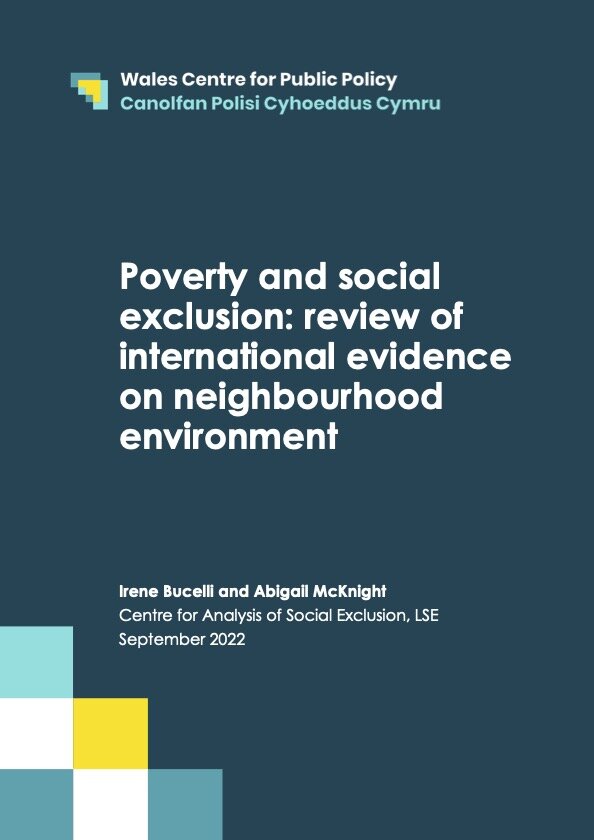Poverty and social exclusion: review of international evidence on neighbourhood environment
By Irene Bucelli and Abigail McKnight
• Geographical concentration of disadvantage can lead to concentrated exclusion. Place-based policies have an important role to play, affecting a range of quality-of life dimensions and experiences of economic, social and civic participation. • These types of localised solutions are limited in relation to poverty reduction, suggesting they should not be considered in isolation of complementary national and regional policy around, for instance, housing, employment, education and social security. • To make sure those who are disadvantaged benefit from local regeneration policies, clear equity and social inclusion objectives need to be set, together with adequate forms of evaluation and monitoring – growth and prosperity cannot be expected to organically ‘trickle down’. • There are connections between neighbourhood environment and policy areas covered in other reviews, for instance: o Digital exclusion: Many strategies for urban regeneration have recently focused on leveraging the potential benefits of digitalisation. Strategies that support digital inclusion are required to reduce the risk of reinforcing existing inequalities. o Household debt; Food insecurity; Fuel poverty: Regeneration strategies can disrupt informal support networks (families, friends, neighbours) which play a critical role in mitigating vulnerability experienced by poor households. • We conclude the review with some promising actions identified in the international literature, namely: o Setting clear objectives in relation to poverty and social exclusion reduction is important for regeneration efforts to make sure benefits reach the most disadvantaged and to avoid gentrification. o This calls for evaluations to be planned alongside interventions which focus on distributional outcomes, not only processes and outputs. Realistic timeframes and estimates of ‘social value’ should also be included. o Community-led approaches can mitigate the risks of gentrification but require proactive engagement of disadvantaged citizens in the community.
Cardiff: The Wales Centre for Public Policy, 2022. 36p.


